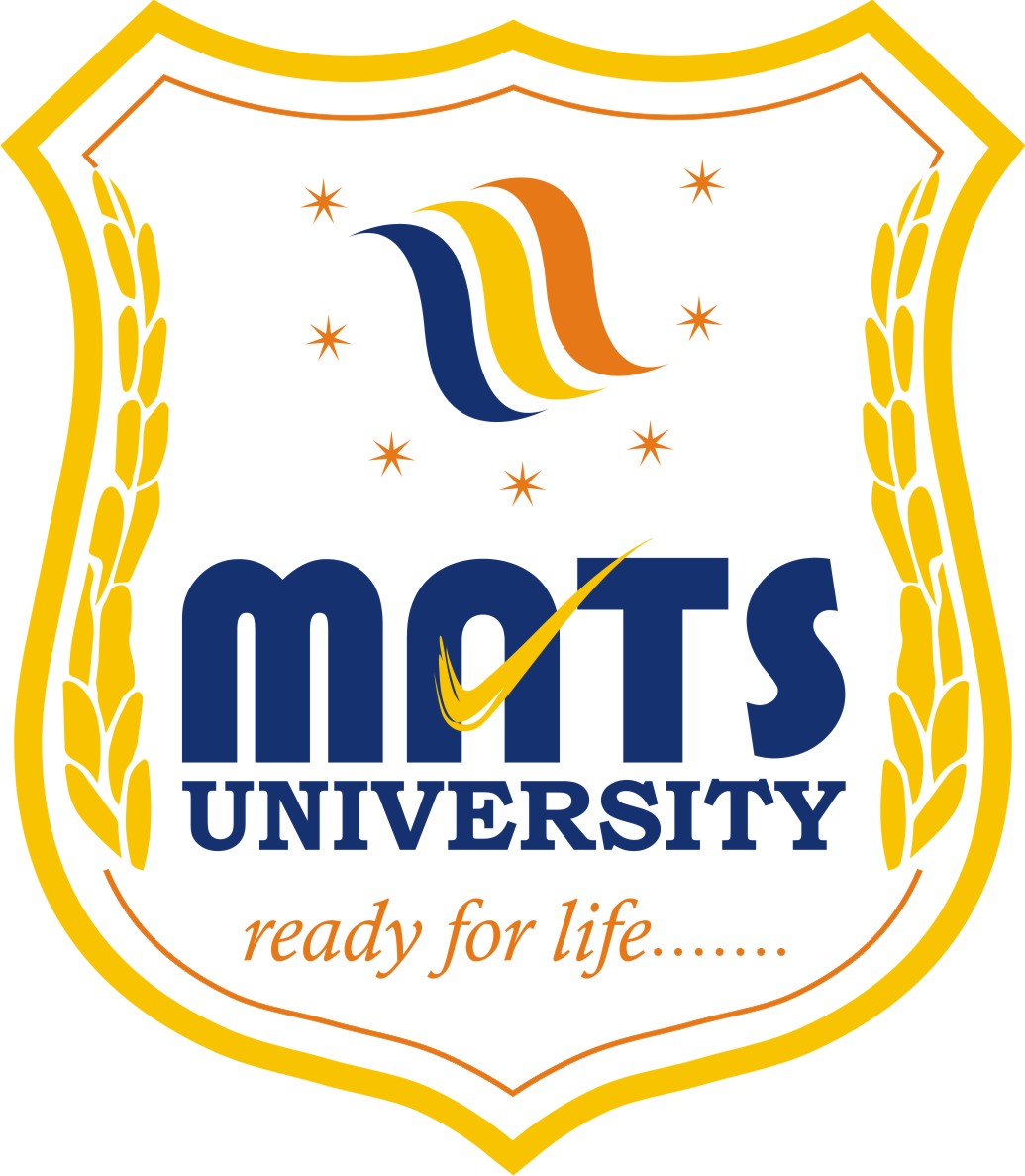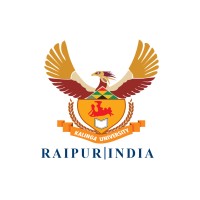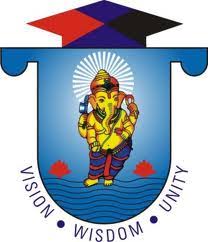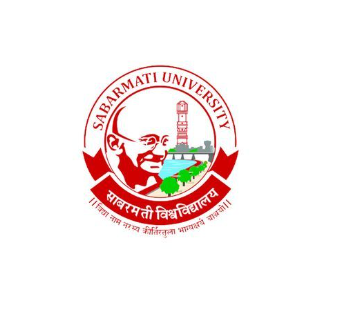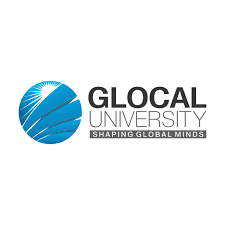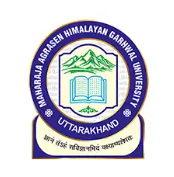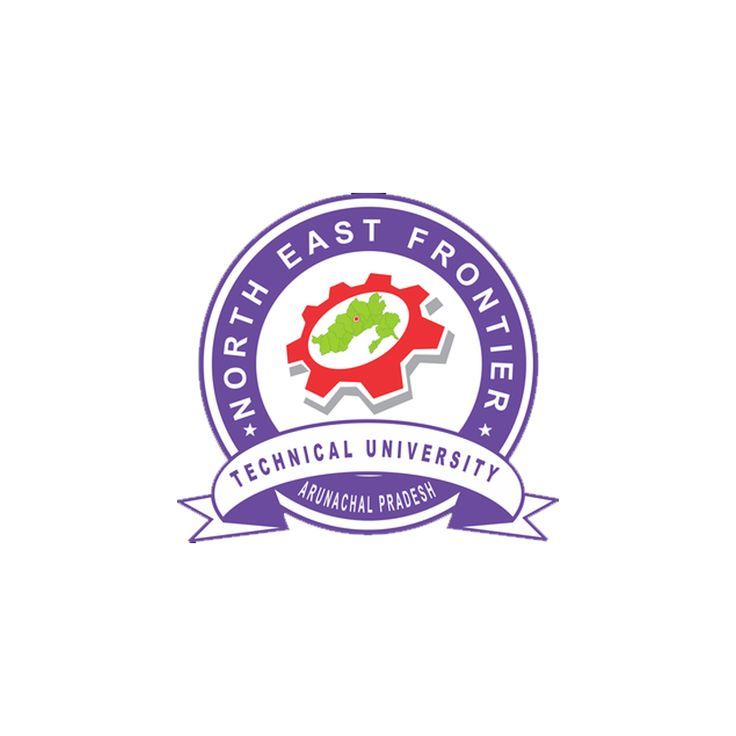Nursery & Primary Teacher Training (NPTT) Admission 2024-25 - Shikshaglobe

Nursery & Primary Teacher Training
Teachers have an extremely good duty in today`s society. They are shaping up destiny minds and having the proper sort of instructor for your infant enables withinside the lengthy-time period. Some might argue that tremendous instructors are born. But in reality, it takes a variety of schooling and schooling to attain that stage.
Today many institutes provide degree and certification guides in Nursery and Primary Teachers` schooling. These guides offer crucial competencies like communique competencies, the cap potential to exercise patience, pleasant nature, enthusiasm, etc.
Most universities that provide programmes in Nursery and Primary Teacher Training do now no longer require a whole lot as eligibility standards. There might be a front examination to benefit admission to the programme.
The programmes are typically brief time period and may be anticipated to run for most of the years. It is likewise really well worth noting that a few institutes that provide nursery and number one instructor schooling programmes ought to ask for earlier paintings revel in withinside the equal field.
Read More: PRIMARY TEACHER TRAINING-PTT
The Importance of Nursery & Primary Teacher Training
in Today's World
Establishing a Strong Educational Framework
Nursery and primary teacher training programs equip
educators with the knowledge and skills necessary to provide high-quality
education to young children. These training programs focus on pedagogical
techniques, child psychology, classroom management, curriculum development, and
assessment strategies. Through comprehensive training, teachers become
proficient in creating a nurturing environment that fosters learning and
supports the holistic development of young learners.
Enhancing Teaching Competencies
Effective teaching goes beyond imparting knowledge; it
involves understanding the unique needs of each child and employing teaching
strategies that cater to diverse learning styles. Nursery and primary teacher
training programs empower educators with a repertoire of instructional methods,
tools, and resources to engage students effectively. Teachers learn to adapt
their teaching approaches, differentiate instruction, and create inclusive classrooms
that cater to students with varying abilities and backgrounds.
Creating a Positive Learning Environment
Teachers who undergo nursery and primary teacher training
gain insights into creating a positive and inclusive learning environment. They
learn to establish strong relationships with students, parents, and colleagues,
fostering collaboration and open communication. A supportive classroom
environment enhances student motivation, promotes active participation, and
contributes to a conducive atmosphere for learning and personal growth.
Instilling a Love for Lifelong Learning
For NTT Admission & Counselling Call @ 9392900040
Nursery and primary teacher training instills in educators a
passion for lifelong learning, inspiring them to stay updated with the latest
educational practices, theories, and methodologies. Teachers who continuously
seek professional development opportunities can enrich their teaching
approaches and provide their students with a dynamic learning experience.
Through their own dedication to learning, teachers serve as role models for
their students, instilling a love for learning that extends beyond the classroom.
Exploring Different Types of Nursery & Primary
Teacher Training
Diploma/Certificate Programs
Diploma and certificate programs in nursery and primary teacher training provide a comprehensive foundation in early childhood education. These programs typically cover areas such as child development, curriculum planning, teaching methodologies, and assessment techniques. They equip aspiring educators with the necessary skills and knowledge to begin their teaching careers in nurseries and primary schools.
Read Also: PRE PRIMARY TEACHER TRAINING-PPTT
Bachelor's Degree Programs
Bachelor's degree programs in early childhood education or
primary education offer a more in-depth understanding of the principles and
practices of teaching young children. These programs combine theoretical
knowledge with practical teaching experiences, allowing students to apply their
learning in real-world educational settings. A bachelor's degree in this field
opens up opportunities for higher-level teaching positions and leadership roles
in the education sector.
Master's Degree Programs
Master's degree programs in nursery and primary teacher
training provide educators with advanced knowledge and expertise in early
childhood education. These programs delve into specialized areas such as
curriculum development, educational research, assessment and evaluation, and
educational leadership. Graduates with a master's degree can pursue careers as
teacher educators, curriculum specialists, or administrators in educational
institutions.
Benefits of Pursuing Nursery & Primary Teacher Training
Enhanced Teaching Skills and Competencies
Nursery and primary teacher training programs equip
educators with a wide range of teaching skills and competencies. From designing
engaging lesson plans to managing diverse classrooms, trained teachers possess the
expertise to deliver effective instruction and foster student success. They
learn to tailor their teaching approaches to meet the needs of individual
learners, enabling them to create a positive impact on students' academic and
personal development.
Professional Recognition and Career Advancement
Completing nursery and primary teacher training programs
enhances a teacher's professional standing and opens up avenues for career
advancement. Many educational institutions, both public and private, require teachers
to hold relevant certifications and qualifications. By acquiring specialized
training, teachers can access better job opportunities, higher salaries, and
positions of leadership and responsibility within the education sector.
Personal and Professional Growth
Nursery and primary teacher training programs not only enhance teaching skills but also contribute to personal and professional growth. Educators develop a deeper understanding of child development, educational psychology, and instructional strategies. They become more adaptable, flexible, and resourceful in meeting the diverse needs of their students. This growth translates into increased job satisfaction and a sense of fulfillment in positively influencing the lives of young learners.
Learn More: EARLY CHILDHOOD CARE EDUCATION-ECCE
How Nursery & Primary Teacher Training Enhance
Professional Development
Nursery and primary teacher training plays a crucial role in
the professional development of educators. These programs offer opportunities
for teachers to expand their knowledge, refine their teaching techniques, and
stay updated with current educational trends and research. Through continuous
professional development, teachers can enhance their instructional practices,
adopt innovative teaching methodologies, and integrate technology effectively
into their classrooms. Professional development programs also foster
collaboration among educators, encouraging the exchange of ideas and best
practices, and providing a supportive network for ongoing growth and learning.
The Role of Nursery & Primary Teacher Training in
Career Advancement
Nursery and primary teacher training programs serve as a
stepping stone for career advancement in the field of education. Teachers who
acquire specialized training can progress into leadership roles such as
curriculum coordinators, instructional coaches, or school administrators. These
positions offer opportunities to influence educational policies, drive systemic
change, and make a broader impact on the quality of education provided to young
children. Furthermore, advanced degrees in early childhood education can pave
the way for a career in teacher education, educational consulting, or research.
Choosing the Right Education Course for Your Goals
When selecting a nursery and primary teacher training
course, it is essential to consider your career goals and aspirations. Research
different programs, assess their curriculum, and evaluate the program's
alignment with your interests and career objectives. Look for programs that
offer practical teaching experiences, opportunities for mentorship, and
connections to the education community. Consider factors such as accreditation,
reputation, and alumni success to ensure that the program you choose provides a
solid foundation for your future as an educator.
Online vs. Traditional Nursery & Primary Teacher
Training: Pros and Cons
With the advancement of technology, aspiring teachers now
have the option to pursue nursery and primary teacher training either through
traditional face-to-face programs or online platforms. Both modes of training
offer unique advantages and considerations.
Online Nursery & Primary Teacher Training
Pros:
- Flexibility:
Online training programs provide flexibility in terms of scheduling,
allowing individuals to balance their studies with work or other
commitments.
- Accessible
Resources: Online platforms offer a wealth of digital resources, including
e-books, videos, and interactive modules, which can enhance the learning
experience.
- Global
Reach: Online training programs provide access to educators and resources
from around the world, facilitating cross-cultural learning and exposure
to diverse perspectives.
Cons:
- Limited
Face-to-Face Interaction: Online training may lack the personal
interaction and immediate feedback that traditional face-to-face programs
offer.
- Self-Motivation
and Discipline: Online learners must be self-motivated anddisciplined to
stay on track with their studies and complete assignments independently.
- Technical Challenges: Online training relies on stable internet connections and technological proficiency, which may pose challenges for some individuals.
Continue Reading: CERTIFICATE IN NANNY CARE ADMISSION
Traditional Nursery & Primary Teacher Training
Pros:
- Face-to-Face
Interaction: Traditional training programs provide direct interaction with
instructors and peers, allowing for immediate feedback, collaboration, and
networking opportunities.
- Hands-On
Experience: In-person training often includes practical teaching
experiences in real classrooms, which can enhance pedagogical skills and
confidence.
- Structured
Learning Environment: Traditional programs provide a structured learning
environment with scheduled classes and established routines, which can be
beneficial for individuals who thrive in a classroom setting.
Cons:
- Limited
Flexibility: Traditional programs often require individuals to attend
classes at specific times, which may be challenging for those with other
commitments or who prefer a more flexible learning schedule.
- Geographic
Limitations: Individuals may need to relocate or commute to attend a
traditional training program, which can be inconvenient or costly.
- Higher
Cost: Traditional programs may have higher tuition fees and additional
expenses associated with commuting or relocating.
When deciding between online and traditional nursery and
primary teacher training, consider your learning style, personal circumstances,
and preferences. Choose the mode of training that aligns best with your needs
and enables you to maximize your learning potential.
The Future of Nursery & Primary Teacher Training:
Trends and Innovations
The field of nursery and primary teacher training is
constantly evolving, driven by emerging trends and innovative practices. Here
are some key trends shaping the future of teacher training:
- Integration
of Technology: Technology integration is becoming increasingly important
in teacher training programs. Educators need to be adept at utilizing
educational technology tools and platforms to enhance instruction, engage
students, and facilitate personalized learning experiences.
- Emphasis
on Inclusive Education: Teacher training programs are placing a strong
focus on inclusive education, equipping educators with the knowledge and
strategies to support students with diverse learning needs. Teachers are
being trained to create inclusive classrooms that promote equity,
diversity, and inclusion.
- Blended
Learning Approaches: Blended learning, which combines online and
face-to-face instruction, is gaining popularity in teacher training. This
approach allows for flexibility, personalized learning, and the
integration of technology while still providing valuable in-person
interactions and experiences.
- Global
Collaborations: Teacher training programs are fostering collaborations and
partnerships on a global scale. This enables educators to learn from
international perspectives, exchange best practices, and contribute to the
development of a global educational community.
- Research-Based
Practices: Teacher training programs are increasingly incorporating
research-based practices into their curricula. Educators are encouraged to
stay informed about the latest research findings and evidence-based
teaching strategies to enhance their instructional effectiveness.
The Impact of Nursery & Primary Teacher Training on
Student Success
Quality nursery and primary teacher training has a profound impact on student success and achievement. Well-trained teachers possess the skills and knowledge to create engaging and effective learning environments, cater to diverse learning needs, and foster positive student-teacher relationships. Research has consistently shown that students taught by highly qualified and trained teachers demonstrate better academic outcomes, higher levels of engagement, and increased motivation to learn. By investing in nursery and primary teacher training, we invest in the future success of our students and the overall quality of education.
Read On: Play School Education Course
Addressing the Challenges of Nursery & Primary
Teacher Training and Finding Solutions
While nursery and primary teacher training is essential, it
is not without its challenges. Some common challenges include:
- Limited
Resources: Many educational institutions, particularly in low-resource
settings, face challenges in providing adequate training resources,
materials, and professional development opportunities for teachers.
- Time
Constraints: Teachers often face time constraints due to heavy workloads,
administrative responsibilities, and the need to balance various tasks.
Finding time for professional development can be a challenge.
- Changing
Educational Landscape: The education sector is continuously evolving, with
new curriculum frameworks, teaching methodologies, and assessment
approaches. Keeping up with these changes and adapting teaching practices
can be overwhelming for educators.
To address these challenges, it is crucial for stakeholders,
including educational policymakers, institutions, and teachers themselves, to
work collaboratively and implement the following solutions:
- Adequate
Funding: Governments and organizations should allocate sufficient
resources and funding to support nursery and primary teacher training
programs. This includes providing access to quality materials, technology,
and ongoing professional development opportunities.
- Time
for Professional Development: Schools and educational institutions should
prioritize and allocate dedicated time for teachers' professional
development. This may involve scheduling regular training sessions,
workshops, or conferences to enable teachers to enhance their skills and
stay updated with the latest educational practices.
- Collaboration
and Support: Establishing collaborative networks among teachers,
educational institutions, and organizations can provide a support system
for educators. This collaboration can facilitate the sharing of best
practices, resources, and experiences, enabling teachers to overcome
challenges and find solutions collectively.
Understanding the Pedagogy and Methodology of Nursery
& Primary Teacher Training
Nursery and primary teacher training programs focus on
various pedagogical approaches and methodologies that foster effective teaching
and learning. Some commonly emphasized pedagogical principles include:
- Play-Based
Learning: Recognizing the importance of play in early childhood, teacher
training programs promote play-based learning approaches that engage
children's curiosity, imagination, and creativity. Play is viewed as a
powerful tool for cognitive, social, and emotional development.
- Child-Centered
Approaches: Teacher training emphasizes child-centered approaches that
prioritize the unique needs, interests, and abilities of each learner.
Educators learn to design instructional activities and environments that
promote active participation, critical thinking, and student agency.
- Differentiated
Instruction: Teachers are trained to differentiate instruction to
accommodate diverse learners. This involves tailoring teaching methods,
materials, and assessments to meet the individual needs and learning
styles of students, ensuring that all children have access to meaningful
learning experiences.
- Assessment
for Learning: Teacher training programs emphasize the use of formative
assessment techniques to monitor student progress, provide timely
feedback, and guide instructional decisions. Teachers learn to use
assessment data to identify areas of strength and areas requiring
additional support, enabling them to adapt their teaching strategies
accordingly.
The Global Perspective: Nursery & Primary Teacher
Training Around the World
Nursery and primary teacher training programs vary across countries and regions, reflecting the unique educational contexts and priorities of different nations. While there are diverse approaches, there is a shared recognition of the importance of early childhood education and the need for well-trained educators. Some countries have established comprehensive and rigorous teacher training frameworks, including specialized degrees, certifications, and ongoing professional development requirements. Others are actively working to enhance the quality and accessibility of nursery and primary teacher training programs to ensure that educators are equipped with the necessary skills and knowledge to support children's learning and development.
Learn More: Post Graduate Diploma in Visual Arts Course
Nursery & Primary Teacher Training for Lifelong
Learning and Personal Growth
Nursery and primary teacher training is not only valuable
for professional development but also for personal growth and lifelong
learning. Teachers who engage in ongoing training and continuous professional
development expand their knowledge, refine their teaching practices, and stay
abreast of educational advancements. Moreover, the skills acquired through
teacher training can be applied to various facets of life, such as effective
communication, problem-solving, and leadership. By investing in their own
growth, educators cultivate a mindset of lifelong learning, which they can
impart to their students, inspiring a love for learning and personal growth
beyond the classroom.
Funding and Scholarships for Nursery & Primary
Teacher Training
Recognizing the importance of quality nursery and primary
teacher training, many governments, organizations, and institutions offer
funding and scholarships to aspiring and practicingteachers. These financial resources
aim to support individuals who are passionate about pursuing a career in
education but may face financial constraints. Some funding and scholarship
options include:
- Government
Scholarships: Many governments provide scholarships, grants, or financial
aid programs for individuals interested in pursuing nursery and primary
teacher training. These programs vary in scope and eligibility criteria,
so it is essential to research and apply for relevant opportunities in
your country.
- Education
Institutions: Educational institutions, such as universities, colleges,
and teacher training institutes, often offer scholarships and funding
options specifically for their teacher training programs. These
scholarships may be merit-based or need-based, and they can significantly
reduce the financial burden of tuition fees.
- Nonprofit
Organizations: Various nonprofit organizations and foundations are
dedicated to promoting education and supporting aspiring teachers. They
offer scholarships, grants, and financial assistance programs that aim to
increase access to quality teacher training. Research and reach out to
these organizations to explore funding opportunities.
- Teacher
Education Programs: Some teacher education programs have partnerships with
schools or educational institutions that provide financial support to
trainee teachers. These programs may offer tuition waivers, stipends, or
work-study opportunities to help cover the costs of teacher training.
When seeking funding or scholarships for nursery and primary
teacher training, it is crucial to carefully review the eligibility
requirements, application deadlines, and any additional obligations associated
with the financial support. Prepare a strong application that highlights your
passion for teaching, academic achievements, and commitment to making a
positive impact in the field of education.
Case Studies: Success Stories from Education Course
Graduates
- Sarah's
Journey: Sarah, a passionate educator, enrolled in a nursery and primary
teacher training program to enhance her teaching skills and advance her
career. Through the program, she gained a deep understanding of child
development, innovative teaching strategies, and the importance of
creating an inclusive classroom. Equipped with her newfound knowledge and
confidence, Sarah transformed her teaching practices, resulting in
improved student engagement, academic performance, and overall classroom
dynamics. She became a respected leader among her colleagues and was
appointed as a mentor for new teachers in her school.
- John's
Impact: John, a graduate of a nursery and primary teacher training
program, embarked on his teaching career in an underserved community.
Armed with his training, John was well-prepared to address the unique
challenges faced by his students. He employed a student-centered approach,
integrating technology and interactive teaching methods to make learning
engaging and accessible. John's commitment to his students' success
resulted in significant improvements in academic outcomes and increased
motivation among his students. His innovative practices earned him
recognition, and he was invited to share his experiences at national
education conferences, inspiring other educators to make a difference in
disadvantaged communities.
These case studies demonstrate the transformative power of nursery and primary teacher training. By equipping educators with the necessary skills, knowledge, and support, teacher training programs have the potential to empower teachers and positively impact the lives of their students.
Read Also: Post Graduate Diploma in Textile Management Course
Nursery and Primary Teacher Training - NPTT Requirement
All candidates who're a success in finishing a degree in Nursing and Primary Teacher Training want to have a sure skillset. To be capable of making a difference, candidates should have:
Patience
Good communique competencies
Enthusiasm
Friendly and emphatic nature
Confidence
Energetic
Nursery and Primary Teacher Training NPTT Eligibility Criteria
Education: The best schooling standards that candidates want to have is they should have surpassed their 10+2 degree examinations efficaciously with a minimum of 50% marks or an equal GPA. The earlier instructional certificate should be from a diagnosed board.
Age Limit: Nursery and Primary Teacher Training guides do now no longer have any age limit. Applicants can observe proper after passing their twelfth magnificence examinations or maybe candidates with master's or bachelor`s ranges can observe to study.
Nursery and Primary Teacher Training Admission Process
The admission technique has been made clean via way of means of institutes supplying the course. Applicants can observe online and additionally in men or women via way of means of taking walks on the campus. For candidates who're distant, being capable of observing online is specifically a boon as it'd keep a variety of time. They also can add all their files online or even pay their expenses online.
The admission technique is each merit-primarily based totally and additionally on the idea of a front examination in a few universities.
Nursery and Primary Teacher Training Placements
Graduates could be capable of steady jobs in faculties as quickly as they graduate. Institutes offer placement assistance to candidates via way of means of schooling them with interview competencies, assisting with the college students` resumes, and connecting with enterprise experts. Some institutes additionally make college students aware of any openings in close by faculties in order that candidates can observe there.
These guides are quite employable and graduates will don't have any issues locating appropriate jobs.
Nursery and Primary Teacher Training Syllabus
All packages are brief time period and numerous subjects are taught all through the complete duration. Some topics taught in maximum schools are:
Child Psychology
Child Care
Basics of Nursery and Primary Education
History of Nursery and Primary Education
Practical: arts, crafts, etc.


